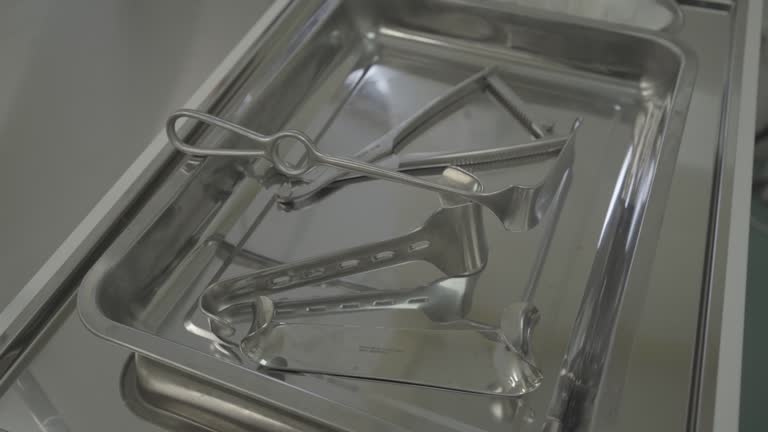Pakistan has established itself as a key player in the global medical and surgical instruments industry. With its highly skilled workforce, competitive pricing, and commitment to quality, the country is now a major exporter of surgical instruments. This comprehensive guide explores the evolution, strengths, and key players of Surgical Instrument Manufacturers in Pakistan highlighting their contributions to the global healthcare landscape.
Evolution of Surgical Instrument Manufacturing in Pakistan
A Legacy of Craftsmanship
The foundation of surgical instrument manufacturing in Pakistan dates back to the early 20th century, primarily centered in Sialkot. Known for its skilled artisans and mastery in crafting precision instruments, the city became synonymous with high-quality surgical tools. Over the decades, this legacy has been modernized with state-of-the-art technology and adherence to international standards.
Growth Drivers
Several factors have contributed to the rise of surgical instrument manufacturers in Pakistan:
- Skilled Labor: A strong tradition of metalworking has allowed Pakistan to nurture highly skilled craftsmen.
- Cost-Effectiveness: Competitive pricing without compromising quality gives Pakistani manufacturers an edge.
- Compliance with Global Standards: ISO and FDA certifications are commonly obtained by manufacturers, ensuring international acceptance.
- Export-Oriented Growth: Over 90% of surgical instruments produced in Pakistan are exported to markets in Europe, the USA, and the Middle East.
Key Products Offered by Surgical Instrument Manufacturers in Pakistan
Pakistani manufacturers produce a vast array of surgical instruments, catering to different specialties and needs.
Types of Scissors
One of the standout products from Pakistan is surgical scissors. These instruments are used across various medical fields, including surgery, dentistry, and ophthalmology. Here are Types of Scissors:
- Operating Scissors: Used for general surgical purposes like cutting sutures or tissues.
- Dissecting Scissors: Precision tools designed for separating tissues.
- Iris Scissors: Fine, sharp scissors used in delicate surgeries such as ophthalmic procedures.
- Bandage Scissors: Designed for cutting dressings and bandages safely.
Other Popular Instruments
- Forceps: Including hemostats, tissue forceps, and dressing forceps.
- Scalpels: Available in various sizes and shapes for different surgical needs.
- Retractors: Essential tools for holding back tissues to improve visibility during surgery.
- Orthopedic Instruments: Precision-engineered tools used in bone surgeries.
Leading Surgical Instrument Manufacturers in Pakistan
Several companies in Pakistan have carved a niche for themselves in the global market. Here are some of the leading names:
- Sialkot Surgical: Known for its vast range of general and specialized surgical tools.
- PakSurg Instruments: Focused on exporting high-quality instruments to Europe.
- Medispo Instruments: Offers ISO-certified surgical and dental instruments.
- ProSurg Medics: A pioneer in orthopedic and minimally invasive surgical tools.
These companies emphasize quality assurance, innovation, and timely delivery, ensuring strong international partnerships.
Pakistan’s Competitive Advantage in Surgical Instrument Manufacturing
Cost and Quality Balance
Pakistani manufacturers strike an excellent balance between affordability and quality. This has allowed them to dominate markets where high-quality yet cost-effective instruments are in demand.
Investment in Technology
Over the years, Pakistani manufacturers have adopted advanced CNC machines, laser cutters, and heat treatment processes to enhance precision and efficiency.
Focus on Sustainability
Many manufacturers are now shifting towards environmentally friendly practices, such as minimizing waste and using recyclable materials, to align with global sustainability standards.
Challenges Facing the Industry
Despite its growth, the surgical instruments industry in Pakistan faces several challenges:
- Supply Chain Issues: Fluctuations in raw material prices can affect manufacturing costs.
- Regulatory Hurdles: Adhering to diverse international regulatory standards can be complex.
- Competition: Emerging markets like India and China are increasing competition in the global arena.
Future Prospects for Surgical Instrument Manufacturers in Pakistan
The future of the industry appears bright due to the following trends:
Increasing Global Demand
With an aging global population and rising healthcare needs, the demand for surgical instruments is expected to grow.
Expansion into High-Tech Segments
Pakistani manufacturers are increasingly exploring high-tech segments such as minimally invasive surgical instruments and robotic surgery tools.
Government Support
Initiatives by the government to encourage exports and provide subsidies for technology upgrades will further enhance the industry’s competitiveness.
Conclusion
The rise of surgical instrument manufacturers in Pakistan is a testament to the country’s industrial resilience and ingenuity. By leveraging its skilled labor, competitive pricing, and commitment to quality, Pakistan has positioned itself as a trusted supplier of surgical tools worldwide. As the industry continues to innovate and adapt to global needs, it is set to play an even more prominent role in the healthcare sector.




